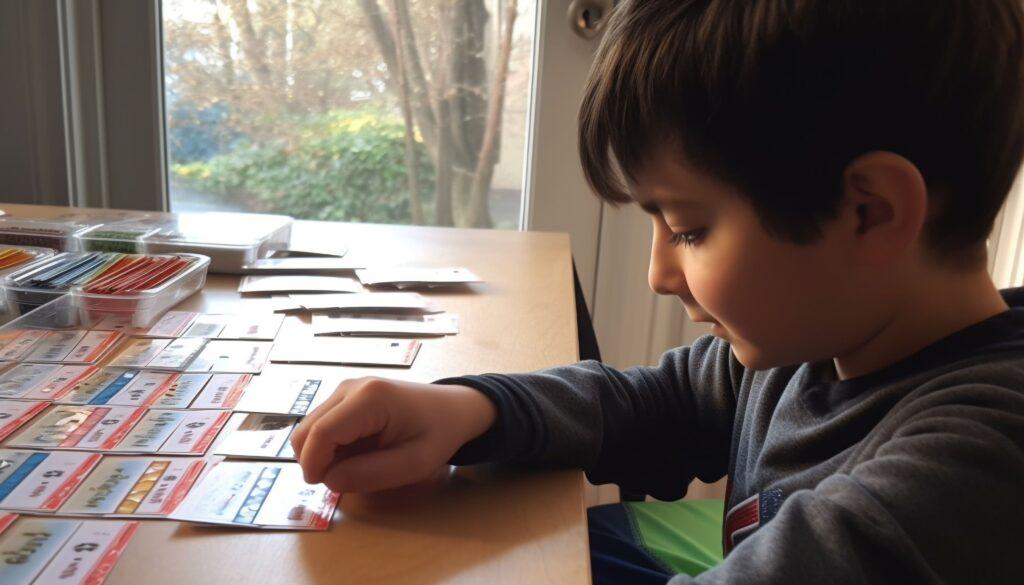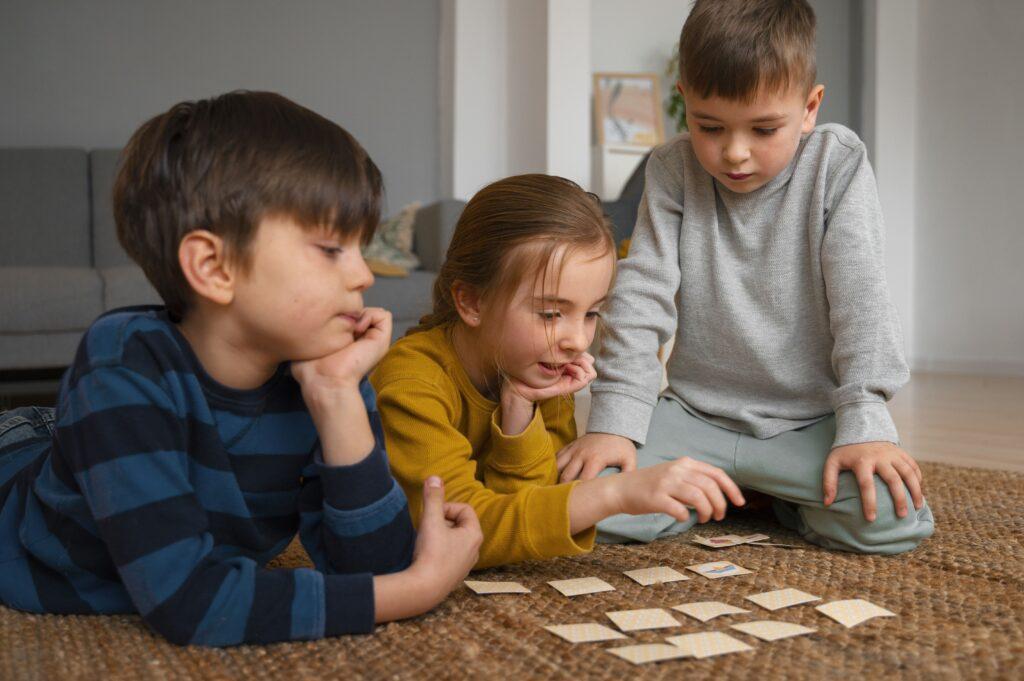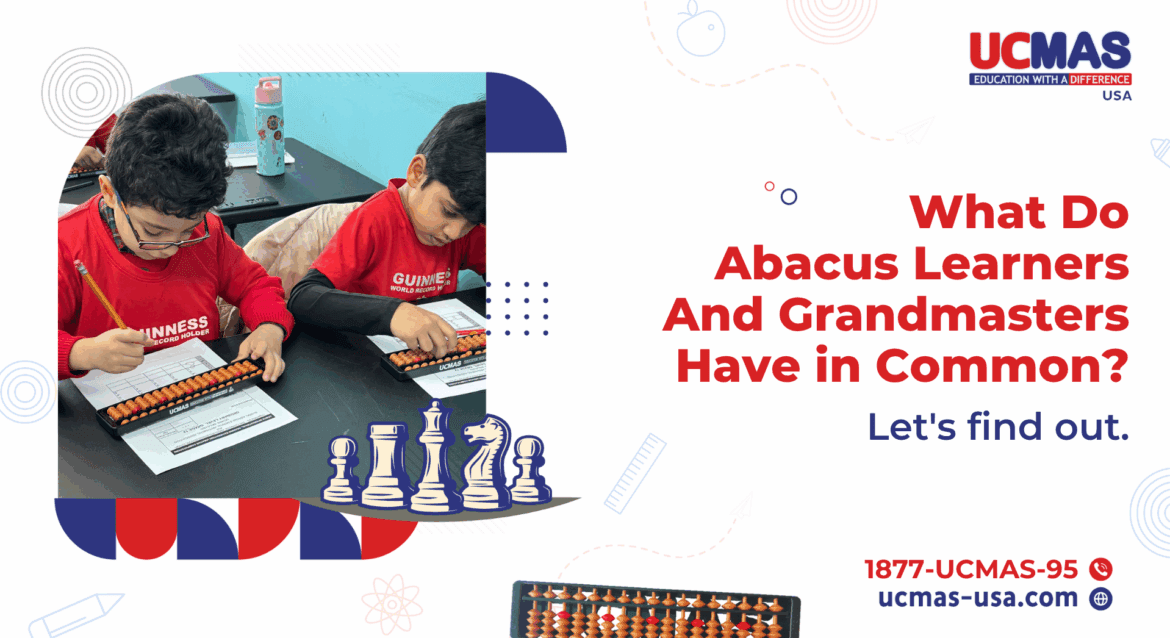When you think of an abacus, the first thing that might pop into your head is a tool for faster arithmetic. It’s a centuries-old device, often associated with speed, precision, and better math scores. No surprise there.

But here’s a more unexpected question:
Can an abacus math program also make your kid a better gamer?
We’re not just talking about video games, but classic brain-challengers—like chess, Sudoku, logic puzzles, and memory games. The kind that demands laser-sharp focus, mental agility, and strategy.
As more parents turn to abacus classes to build academic skills, there’s growing curiosity about what else this training strengthens. Could the same mental muscles used to solve math problems help kids plan five moves ahead in chess? Or recognize patterns faster in a puzzle grid?
Let’s unpack this fascinating intersection between abacus learning and strategic gameplay—and what it might mean for your child’s growing brain.
The Hidden Link Between Abacus and Strategic Games
Most people associate abacus math with fast math skills, but the benefits go far beyond calculation. Behind every mental sum is a cognitive process that builds concentration, visualization, and decision-making speed. These skills overlap directly with the demands of games like chess and Sudoku, where strategy and foresight rule.
While abacus training seems unrelated to chess at first glance, both share a fundamental skillset: staying focused, thinking several steps ahead, and reacting in real-time.
That’s the hidden link. When children regularly use an abacus tool to solve problems mentally, they’re essentially practicing mini chess moves – strategizing solutions, analyzing patterns, and making quick decisions.

Key Cognitive Skills Developed in Abacus Classes
Concentration and Memory
In a world filled with digital distractions, a child’s ability to focus is more valuable than ever. Abacus learning—especially through structured in-person and online abacus classes—helps children build deep concentration. By visualizing bead movements and mentally calculating complex problems, they gradually train their brains to tune out interruptions and stay engaged.
Children learn to hold numbers, sequences, and calculations in their minds—an ability that enhances retention, following instructions, and multi-step processing. These memory skills spill over into schoolwork, daily routines, and even emotional regulation.
Creativity
It’s a common myth that math and creativity live in separate worlds. But the truth is, creative problem-solving and abacus maths training go hand-in-hand. Children aren’t just recalling formulas; they’re visualizing answers, approaching challenges from different angles, and exploring multiple ways to reach a solution.
This nurtures a flexible mindset—one that’s curious, imaginative, and unafraid to try new ideas.
Pattern Recognition and Visualization
Abacus learners become exceptionally skilled at recognizing visual and numerical patterns. These aren’t just useful for calculations, but they’re a fundamental part of how the brain understands systems, language, spatial design, and even social cues.
Through repetition and mental imaging, children build the ability to “see” answers in their mind’s eye. This kind of visual thinking supports comprehension in math, reading, science experiments, and complex problem sets across subjects.

Confidence and Problem-Solving
There’s something powerful about a child solving a math problem without needing a calculator, pencil, or even paper. That experience of using their own mental strength builds authentic confidence. Over time, this belief in their own ability helps them face unfamiliar challenges without hesitation.
Whether it’s tackling a tricky school assignment, making decisions, or playing memory games like Chess or Sudoku, this kind of self-assured, independent thinking is a skill for life. And it starts with the small wins they collect in their abacus classes online.
Analytical Thinking
Abacus training helps children move beyond memorization into the realm of logic and analysis. Each session is a mini mental workout where they’re comparing outcomes, evaluating efficiency, and adapting to new problems quickly.
Analytical thinking – developed through abacus maths – equips children to make smarter, faster decisions. It builds the foundation for scientific reasoning, structured writing, financial literacy, and even evaluating cause and effect in daily situations.

Chess, Sudoku, and More: How Abacus Training Makes Your Child a Better Player
Chess
What helps? Strategic Thinking and Predictive Moves
In chess, every move must be thought out in advance. Children who’ve been trained in online abacus are better at calculating several possibilities in their heads. That’s because abacus training improves processing speed and foresight—two things that separate good chess players from great ones. As explored in this blog, abacus thinking helps kids navigate not just games, but real-world decision-making too.

Sudoku and Math Puzzles
What helps? Logic and Number Sense
Sudoku isn’t just a pastime; it’s a workout in logical deduction. Abacus learners already possess heightened number sense, so applying logic in number-based puzzles becomes their second nature. These puzzles also encourage the same kind of pattern recognition and trial-and-error thinking that abacus students develop through repeated visual practice.
Memory Games
What helps? Retention and Recall Under Pressure
Memory-based games train the brain to retain and retrieve information quickly—skills that abacus users are constantly practicing. Since abacus maths emphasizes mental math and bead visualization, children naturally improve their short-term and long-term memory, helping them stay sharp even under pressure.

According to this guide on improving online learning for kids, exercises that engage both visual and memory-based processing significantly enhance cognitive development—something the abacus learning does exceptionally well.
Board Games Like Othello, Checkers, and Go
What helps? Planning Ahead and Managing Complexity
These classic board games require players to juggle multiple scenarios in real time. With abacus training, kids become better at managing complex systems because their brains are used to holding multiple equations or bead positions at once. This enhances multi-step reasoning, essential for strategic board gameplay.

What Makes UCMAS Abacus Training Different?
Structured Curriculum for Holistic Development
Not all abacus programs are created equal. At UCMAS, we follow a structured curriculum that evolves with your child’s pace and learning style. From building a strong foundation to developing high-level mental strategies, our abacus math program covers it all. The result? A holistic thinker with skills that extend well beyond the classroom.
Mental Math Meets Mindful Play
We don’t believe learning should be a chore. That’s why our programs are interactive, playful, and engaging. When children enjoy what they learn – whether it’s through mental arithmetic or games – they retain more and build stronger cognitive networks. Finding the right class makes all the difference in how kids perceive learning and play.

Early Advantage in STEM and Strategic Thinking
The earlier kids develop critical thinking skills, the better. Abacus learners get a head start in subjects that demand logic and strategy, like coding, robotics, and advanced math. And since many of these skills overlap with games like chess and Sudoku, it’s a win-win for both academic and play-based learning. If you’re considering math tutoring, an abacus might be the smarter place to start.
Numbers, Strategy, and the Future of Young Minds
Abacus training isn’t just a fast track to better grades—it’s a full-brain workout. When kids learn through online abacus platforms, they’re developing focus, memory, logic, and strategic thinking, skills that help them become sharper, more confident game players and learners.
So yes, the abacus can make your child better at chess, Sudoku, memory games, and beyond. But more importantly, it prepares them to think ahead in life, solve problems creatively, and enjoy the thrill of smart play.
Ready to see the difference yourself?
Book an Info Session with UCMAS and let your child explore a world where numbers, logic, and fun come together.


